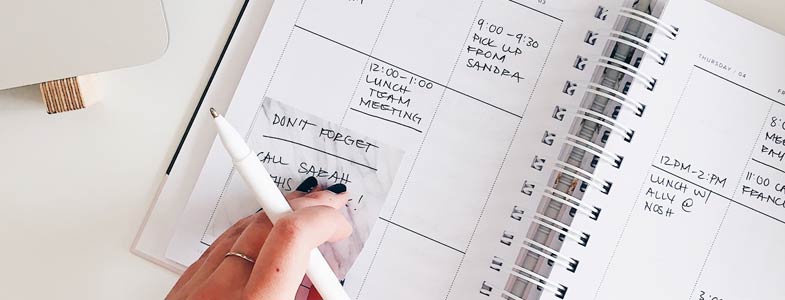
1) Buy cheap food and always cook yourself
The first place where people tend to start saving when budget planning is around food expenses. The reason is simple: if you have time to invest and you want to save money, anyone can start making food savings without any experience, investments, risks, or disappointments. You don’t need to be a skilled cook because you will be the one benefiting from the result, so it’s not like you need to impress anyone with your cooking skills or fancy food. The effort you need to put in is proportional to the level of satisfaction you desire. And usually, a lot of people are willing to give up on a lot of the satisfaction in order to not make too much effort. The most important thing you need to know before you start saving on food is that consistency and habits are the biggest part of the result. If you buy in bulk, you will almost certainly save money, in addition to not wasting extra time and money on multiple trips to the supermarket. If you don’t know how to cook, that’s not a problem. Use YouTube to not only find concrete examples but also recipe ideas that you can cook on a budget. You can also find cooking guides, the only thing you really need is time.
2) Plan what to eat ahead of time

First, try to make a plan to maximize your chance of maintaining it long-term. Choose foods that are satisfying to you and make a weekly meal plan. Make sure you buy food in bulk ahead of time, and cook in advance. Try to avoid getting into a situation where you’re too hungry and you don’t have a cheap option to satisfy your need (aka you need to order takeout). This is one of the most frequent situations that force us to spend much more than we should on food. Even if you manage to get a raise or earn more, if you don’t have a well-established plan and a strict follow-up habit, there is a high chance you will spend all that money (or most of it) on food. I’m telling you this from personal experience. If I think about the last ten years (2010 – 2020), it’s in this sector that I could have saved a huge amount of money.
3) Buy seasonal produce, produced locally if possible

Seasonal produce should be cheaper than foods imported from distant countries. Of course, there are exceptions that we’ll talk about below, but it’s important to know that I’m not talking here about seasonal specialties, which will be a lot more expensive, but about regular seasonal foods like apples, tomatoes, and oranges. Anything growing naturally where you live. Be careful about the first fresh produce of the season, though, because it will most definitely be overpriced. Wait until the market stabilizes and the offer is more abundant, to the level that food risks getting spoiled. That’s when it will probably have the lowest price.
4) Take produce clippings to regenerate and grow your own

If you haven’t had enough food-related advice yet and you think you could do even more, the good news is that you can save a lot in this direction. You just need time, dedication, and soil. What you can do is use clippings and seeds from foods you’re already consuming to plant and grow more. The process is not very difficult, but it’s not for everyone. You need plenty of spare time and patience. If you need advice, you can find a lot of videos on YouTube, including on how to grow all the food that you need on a small piece of land.
5) Avoid places where you can spend money easily

This budget spending hack is mainly to alleviate psychological pressure. Just the mere fact that you’re surrounded by spending opportunities (even if they make sense at first glance) can put pressure on you, a pressure that you can fight only with a trained will and a lot of energy consumption. And don’t forget that everyone’s energy is limited, why would you spend it just to resist temptations? Better to avoid those situations from the get-go. If you make a clear and welcome plan, you will identify all your needs in time and you will be able to ponder a lot more whether a certain spending is a good or bad decision.
8) Live with a roommate

And now let’s move on to housing-related budget spending hacks. One of the biggest savings that you can make is having a flat roommate. This will cut down a lot on your housing expenses. Unfortunately, this option is not realistic for everyone, for example if you care a lot about your privacy, if interruptions really affect your performance, or if you’re a true introvert. But don’t forget, all these luxuries come with a cost, which is reflected in the rent or mortgage price. In addition, if you’re living with a roommate, you might gain some socializing advantages. In case you and your roommate are not a good fit, change them. Nobody is forcing you to live with a certain person. If you don’t like them, build up some courage and just leave. You will put in more effort in selecting people until you find the right match, but once you’ve found one, it will hopefully be smooth sailing moving forward and you will have more advantages than disadvantages.
9) Split subscriptions with friends or family

This brings us to our next budget planning hack. Subscriptions like Netflix, Hulu, or HBO Max can be shared with a roommate, friends, or relatives (brothers, sisters, parents). There are many situations where two people can use the same account. Try it, and if things get too complicated you can always give up. The same goes for online training accounts like Skillshare, Masterclass, or Udemy. You can also look at it from the other perspective: if you think such a subscription would benefit your career but don’t think you could afford it, you could ask your friends or family if they want to participate and access it themselves. It’s not hard to make a schedule so that you don’t overlap, especially when it comes to educational material that you don’t binge-watch like shows on Netflix.
10) Buy second-hand / Thrift

This budget planning hack is not only useful for saving money but for the environment as well. The benefit comes from several perspectives, I’ll show you three exampless. First of all, you will avoid the unethical and controlling strategies of the most popular manufacturers, you won’t encourage them to keep doing the same thing because you aren’t giving them money. You will avoid packaging and transportation, both of which put a heavy toll on the environment. And you will be encouraging local businesses. Money from second-hand shops will probably go to people living in your town, not to a corporation, and then to some shareholders who are concerned just about maximizing profits. But leaving the environment to the side, you will greatly benefit personally because the costs when buying second-hand are much lower. Maybe you’ll be able to even negotiate. Take a look at YouTube for strategies and tactics when buying second-hand. Over time, if you keep searching, you might find some truly unique and extraordinary pieces.
Conclusion:
These are just a small part of all possible budget planning hacks. If you liked them, and want to see more, just bookmark this page and come back in a few months. We will expand them with some new initiatives, but meanwhile, try to put these ones into practice!
